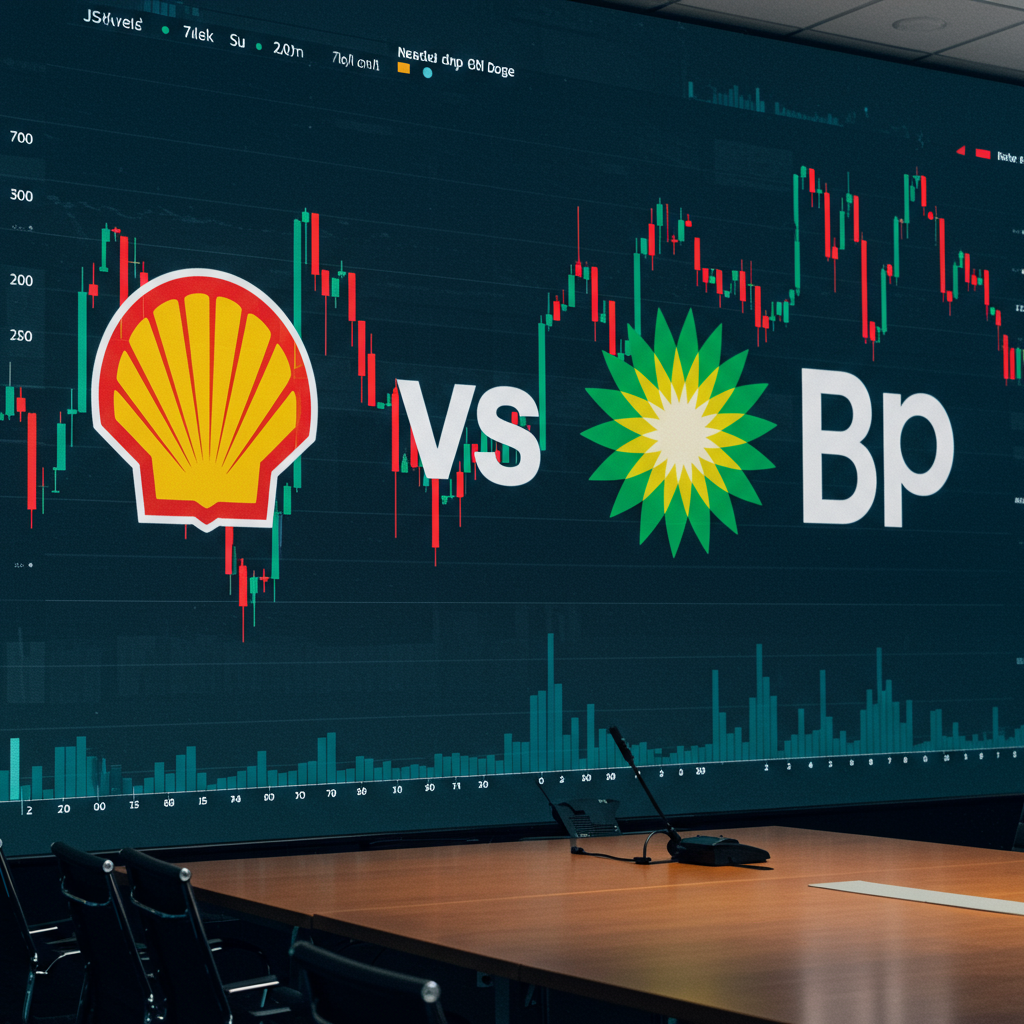BP Shares Volatile as Acquisition Rumors Swirl
BP’s stock experienced significant volatility on Wednesday following a report suggesting the British oil giant could be an acquisition target, specifically for rival Shell. Shares initially surged more than 10% on the news before retreating sharply after Shell issued a firm denial.
The speculation originated from a report in The Wall Street Journal, citing sources familiar with the matter, that Shell was engaged in early-stage discussions about acquiring BP. Such a deal, potentially valued at over $80 billion based on BP’s current market capitalization, would represent the largest transaction in the energy sector since Exxon’s $83 billion purchase of Mobil in the late 1990s.
Shell Issues Strong Denial: “No Talks Are Taking Place”
However, Shell swiftly moved to quash the rumors. A spokesperson for Shell told CNBC that the reports were “further market speculation,” adding definitively, “No talks are taking place.” Shell reiterated its focus on maximizing value within its existing operations through performance, discipline, and simplification, a stance echoed by CEO Wael Sawan, who has previously indicated a preference for share buybacks over major acquisitions like a BP takeover. BP itself declined to comment on the speculation.
Following Shell’s denial, BP’s shares pared back most of their gains, closing up just 1.64%. Shell’s stock also saw some initial decline after the report emerged before recovering slightly.
Why is BP Seen as a Potential Takeover Target?
Despite the denial, speculation around a potential BP acquisition has been persistent. Analysts point to several factors making BP a perceived target:
Underperformance: BP has lagged significantly behind its major rivals, including Shell and U.S. giants like ExxonMobil and Chevron, in terms of both stock performance and overall financial health in recent years. Its market cap trails Shell’s ($211bn) significantly, let alone Exxon ($470bn) or Chevron ($250bn).
Strategic Challenges: The company has struggled to find a clear strategic direction. An ambitious plan launched five years ago to pivot heavily into renewable energy while slashing oil and gas production faced scrutiny as profits faltered and global energy markets shifted.
Failed Green Pivot: Experts suggest BP’s attempt to rapidly transform into a renewable company was a “huge error,” citing the differing capital structures needed for oil and gas versus renewables. This strategy shift under former CEO Bernard Looney, which included aggressive emissions targets, proved challenging, especially after energy prices surged post-2022.
Activist Investor Pressure: Activist hedge fund Elliott Management disclosed a stake of over 5% in BP earlier this year, adding pressure on the company to refine its strategy and improve shareholder returns, particularly by focusing on its core fossil fuel business.
- Boardroom Changes: The turbulence has also extended to leadership, with CEO Bernard Looney’s departure and expectations that Chairman Helge Lund will step down.
- fortune.com
- www.wral.com
- www.theguardian.com
- www.capitalbrief.com
- uk.finance.yahoo.com
BP’s Recent “Hard Reset” Strategy
Under current CEO Murray Auchincloss, who took the helm in late 2023, BP has embarked on a “hard reset” strategy. This involves doubling down on oil and gas investments while significantly cutting back spending on lower-carbon initiatives. The company has announced job cuts and various divestments, including stakes in U.S. onshore wind, Lightsource solar, global offshore wind (via a joint venture), and the TANAP gas pipeline, with reviews underway for assets like Castrol lubricants and retail fueling businesses in certain markets. This pivot aims to grow cash flow and stabilize the company’s performance, but it has faced skepticism from investors and criticism from environmental groups.
Potential Deal Logic (Despite Denial)
While Shell denies talks, market observers note that a combination could theoretically strengthen Shell’s competitive position against the dominant U.S. players. Shell and BP have significant overlap in operations, including shared headquarters in London and joint ventures in regions like the U.S. Gulf. Shell could potentially benefit from BP’s liquified natural gas (LNG) portfolio.
However, sources close to the situation have also suggested that if any deal were to transpire, a full Shell acquisition of BP might be unlikely. A more probable scenario, according to some reports, could involve BP being broken up and sold in pieces to multiple companies.
For now, Shell maintains its focus is internal value creation and share buybacks, dismissing the BP takeover reports as ongoing market noise. The speculation, however, highlights the ongoing challenges BP faces as it navigates a complex energy landscape and works to regain investor confidence following its recent strategic shifts.




